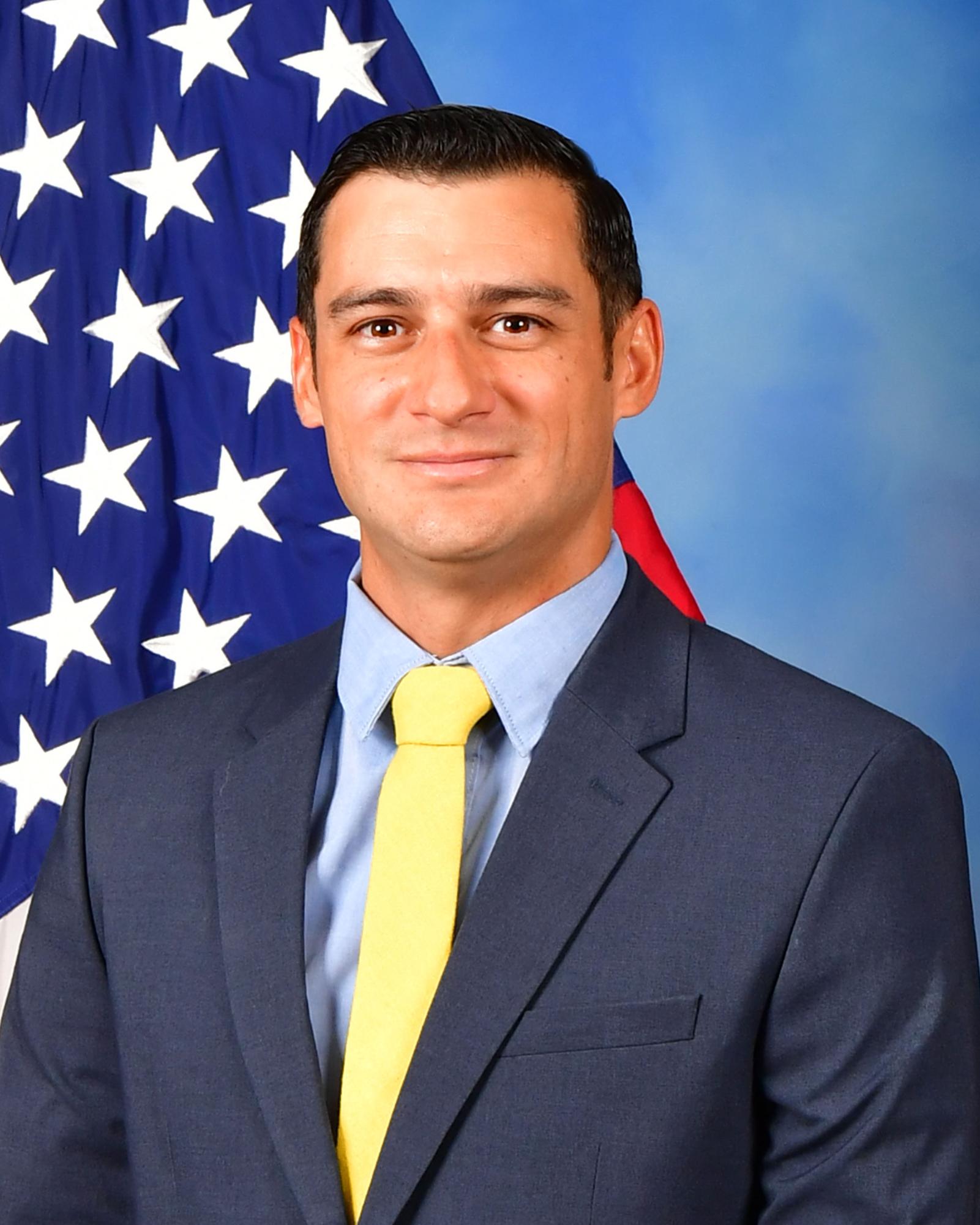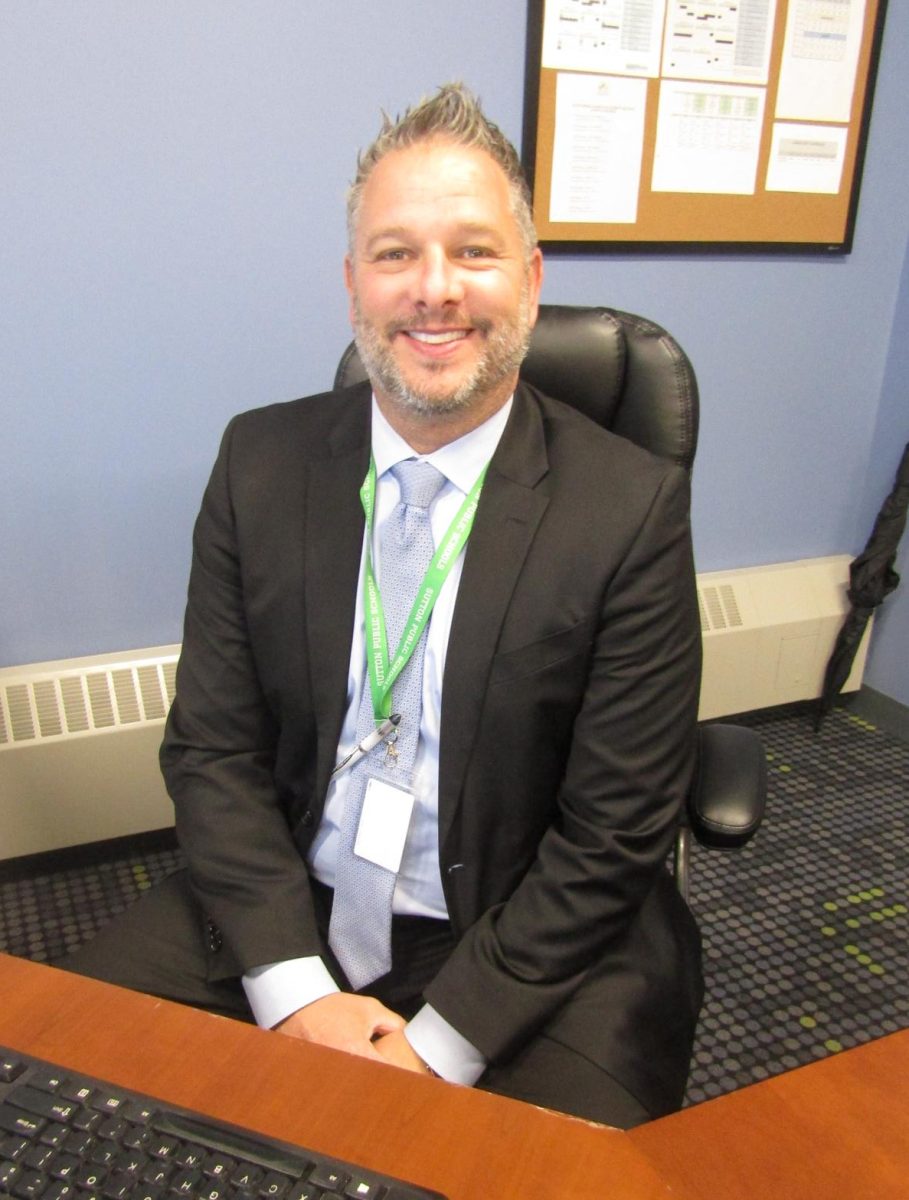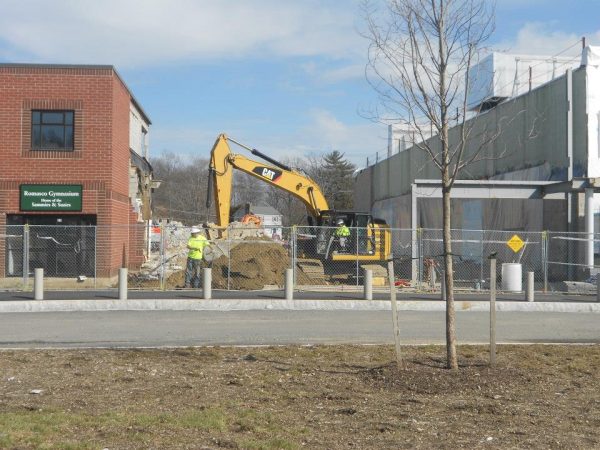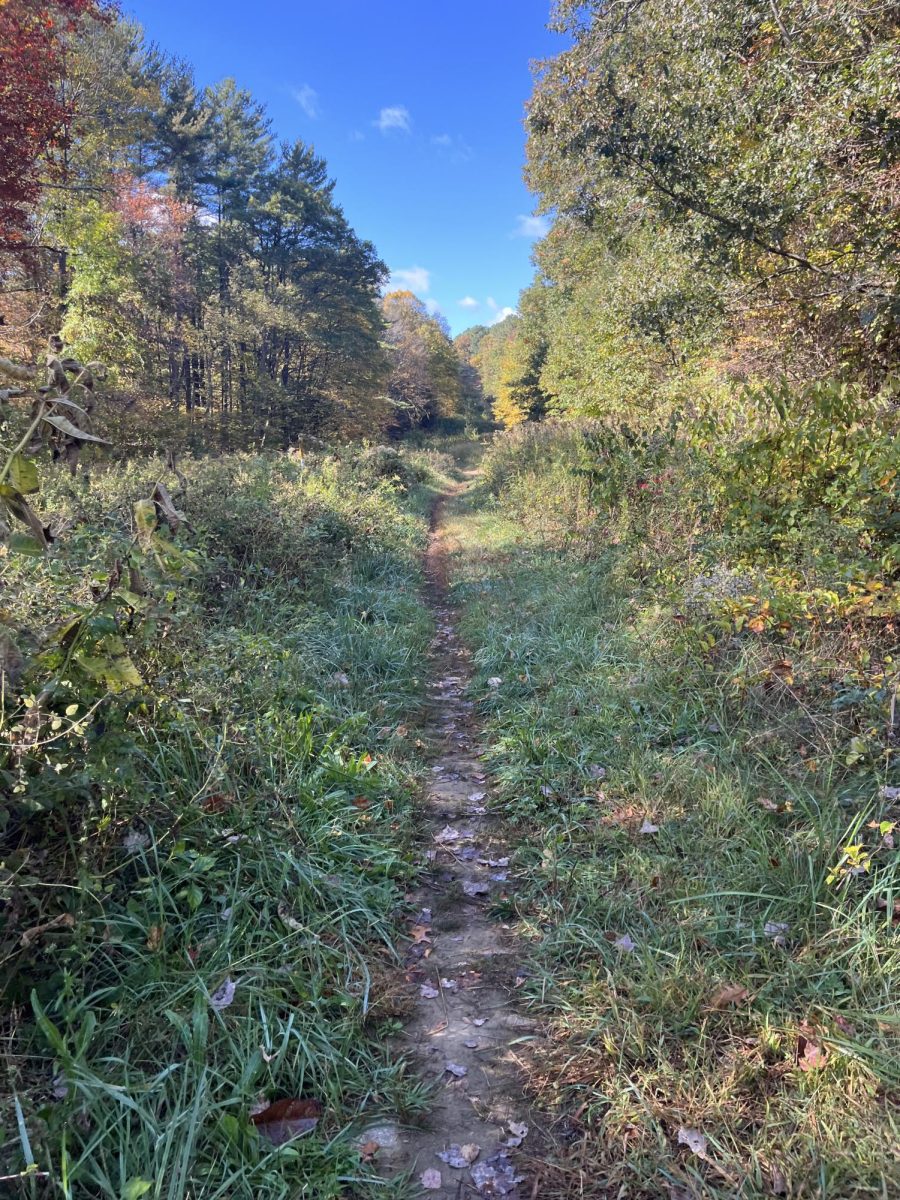SuttonHighNews conducted an interview with each candidate running for the Select Board. Our goal is to provide a more comprehensive look at each candidate so voters can make an informed decision.
SuttonHighNews is not endorsing any candidate. The interviews are being released in a random order with no intent to give anyone more or less time.
All candidates were given the questions in advance. We asked the same questions, in the same order, to each candidate.
In your view, what is the primary purpose of a Select Board Member?
The primary purpose of a Select Board Member is to serve as a steward of the community, balancing both the immediate concerns and the long-term needs of residents while maintaining the resilience and stability of the town. This is accomplished by working with other members of the Select Board to determine a strategic vision for Sutton based on feedback from the community, exercising critical thinking, asking thoughtful questions, and choosing the best course of action; grounded in facts and fairness for everyone. Achieving these goals requires engaging in public discussion to educate residents about ongoing issues and encouraging broad civic participation. A Selectperson should help build trust, transparency, and a shared commitment to the town’s future.
What makes you qualified to be a Select Board Member? What skills/credentials do you bring? What motivated you to run?
I spent twenty years on active duty in the United States Army, much of it in leadership and operational roles that required sound judgment, clear communication, and a deep sense of responsibility and accountability to those I served. I’ve managed teams, budgets, and logistics under some of the most challenging circumstances imaginable. Since retiring, I’ve continued that service through nonprofit work focused on veterans, mental health, and the homelessness crisis. I’ve worked with diverse stakeholders, from federal agencies to grassroots organizations, and I’ve had to make decisions that affected entire communities. These problem sets require navigating complex systems, building meaningful networks, and getting things done with minimal resources. I’m not running as an outsider. I’m a member of this town in every sense of the word. My children attend Sutton’s public schools. My family is rooted here. We’ve chosen this town as our permanent home. I take part in its daily life, its challenges, and its strengths. I want to see Sutton thrive. What I offer is a perspective grounded in reality, shaped by experience, and focused on outcomes.
I am motivated by the need to move beyond divisive rhetoric and reactionary decision-making. I do not believe preserving Sutton means isolating ourselves from one another or from the Commonwealth. Our strength as a town comes from working together, having honest conversations, and building trust across different perspectives.
Sutton has a proud history and a strong identity, but we are also facing real challenges, particularly around financial sustainability, infrastructure, and public safety. We should take pride in our town, but that pride should be backed by tangible value: schools that are well-supported and safe, reliable public infrastructure, responsive emergency services, and a local economy that helps ease the tax burden on residents. We can preserve Sutton’s rural character and still pursue thoughtful, well-planned opportunities that support our long-term stability.
I also believe it is time to rebuild trust between the Select Board and the people who work for this town. Public employees should be treated with professionalism and respect, not discarded or criticized in the public sphere when their actions do not align with individual preferences. A functioning town government depends on cooperation and mutual trust. I want to lead in a way that values our workforce and builds stronger relationships across all levels of local government. This campaign, for me, is not about politics. It is about doing right by my neighbors and making sure Sutton is not just proud of where it has been, but confident in where it is going.
What goals do you have for Sutton?
My goals for Sutton are rooted in the belief that we can protect what makes this town special while ensuring it remains strong and sustainable for future generations. That starts with making sure our core services of education, public safety, and infrastructure are properly supported and able to meet the needs of the community without placing an unfair burden on residents, particularly those on fixed incomes.
I want to see more transparency in how decisions are made and a stronger effort to engage residents early in the process. We need to improve communication, make space for respectful disagreement, and provide the information people need to be part of the conversation.
Long-term financial stability is also a key focus. I believe the town should seriously consider the use of a competent and coherent 40R plan. If done properly, this should generate additional revenue for Sutton and provide access to 40S reimbursements, which help offset the potential cost of increased student enrollment in our schools. The town should also place greater emphasis on medium and high-density housing options, including age-restricted 55+ developments. These approaches can help diversify housing without significantly increasing the operational demands on our school system, while still contributing to the long-term financial health of the community. Additionally, exploring thoughtful, limited commercial development that aligns with Sutton’s character while focusing on maximizing relief of tax burden on homeowners, not necessarily large corporate entities. We should be planning ahead rather than reacting when it is too late, and our choices are limited or dictated.
What are the biggest challenges for Sutton? How will you help address/resolve these challenges?
Sutton has reached a point of fiscal conservation where nearly every aspect of town operations is running as lean as possible. While some may see this as responsible budgeting, the truth is that we are now operating below what is necessary to sustain a thriving and resilient community.
We undercut employee pay and benefits to the point where it is difficult to attract and retain qualified staff. Our schools have seen significant reductions in curriculum and the near elimination of extracurricular programs that once gave our students a competitive edge. Public safety depends heavily on contracted services shared with surrounding communities, many of which are transitioning to fully professionalized models that may no longer include us.
We also continue to resist investment in infrastructure that could support clean drinking water for our schools and provide the foundation for responsible development. Much of this resistance is driven by a desire to preserve Sutton’s rural character and autonomy from the state.
The challenge is that any conversation about growth or planning is often treated as a slippery slope toward urbanization. That is simply not the case. Thoughtful, well-managed development does not have to come at the cost of our identity. The real threat to Sutton is not change, but the failure to plan for it.
We need to take a serious, honest look at how Sutton generates revenue and whether our current approach is sustainable. Proposition 2 1/2 has limited the town’s ability to keep pace with inflation and the growing costs of maintaining essential services. The result is that we are falling behind while telling ourselves we are being fiscally responsible.
I believe we need to confront these realities directly. That means being willing to talk about the true cost of doing business as a town, not just in the short term but over the next five, ten, and twenty years. The projects we continue to delay, whether it is clean drinking water for our schools, strengthening our emergency services, or investing in basic infrastructure, are not going to get cheaper. Delaying them only increases the cost and narrows our options.
We should also be exploring responsible ways to grow our revenue base, including limited commercial development and targeted zoning strategies like 40R, which can offer both state support and long-term financial benefit without sacrificing the character of the town. This conversation also needs to be had with the understanding that we are either acting within or about to be in a recession.
Above all, we need leadership that is willing to be honest with residents, willing to plan, and willing to take action before decisions are made for us by cost, crisis, or consequence.
Why did you choose to live in Sutton?
When I was preparing to transition out of military service, my family and I knew we wanted to return to Massachusetts. It offered the highest concentration and proximity to family and gave us access to the kind of support network we had gone without for many years. We were looking for a place that balanced quality public education, access to healthcare, job opportunities, and the New England culture we wanted our children raised in.
Our home search focused on the greater Worcester area. We knew no community would check every box, but we were looking for a place with good schools, a strong sense of community, and long-term potential. Sutton quickly stood out. There was pride in the way residents talked about their town. It felt like a place where people were invested, and where I could see my family growing for years to come.
The housing market did play a role in where we ultimately landed, but we feel fortunate to have found our home in Sutton. We understand and respect the character of the town, and we are glad to be part of a community that values its identity.
How will you support local businesses and economic development in Sutton?
Sutton sits in a unique and advantageous position. Route 146 runs directly through town and we are within close proximity to Worcester, yet we have done little to capitalize on that. Rather than relying on short-term tools like Tax Increment Financing, which can stifle revenue and shift the burden further onto residents, we should be building a long-term strategy that leverages our location and sets expectations for the type of economic development we want to attract.
Sutton needs to start by asking a fundamental question: what kind of community do we want to be ten, twenty, or thirty years from now? If we are serious about relieving the tax burden on homeowners, especially those on fixed incomes, the town should have been made more informed about the flat tax rate that came only after major commercial developments were completed. That decision signaled a lack of serious consideration for residents who were hoping to see some of that commercial growth reduce their own tax pressures.
There is a lot of conversation around small, local businesses like farm-to-table restaurants or boutique shops. While those ideas sound good, the reality is that if there were strong market demand for them, they likely would have already been established. These ventures are high risk, offer lower tax revenue, and continue to place the responsibility on residents to fund the town’s needs, just under the label of commercial spending.
Instead, I believe Sutton needs to take creative steps to shape a culture and environment that actively attracts the type of development that works for our community. That includes recreational and entertainment-focused businesses like bowling alleys, arcades, and family-friendly activity centers. Commercial development or existing structures should consider experience-based tourism that draws visitors for workshops, classes, and unique events. It also means developing a more capable events committee that can promote town wide gatherings and community events and working to build a stronger foundation for agrotourism that connects visitors with the land and the people who maintain it.
Economic development should not be about reacting to what’s offered. It should be about clearly defining what we want and building the kind of community that attracts and sustains it.
How will you work with your fellow selectmen?
I intend to work with my fellow Select Board members in a way that is respectful, grounded in facts, and focused on the long-term stability of the community. A key part of that is removing divisive rhetoric and buzzwords from the way we influence public opinion. The overall goal is to evoke thought-provoking discussions. We are elected to serve, not to inflame or distract.
I believe there is a perspective missing from the current board. Nearly every voice on the Select Board, or working toward a seat on it, speaks as though the best path forward for Sutton is to go backward. That is not just unrealistic. It is an irresponsible approach to governance.
Our role is to listen to the residents of this town and to base our decisions on facts, not personal feelings or nostalgia. I would hope to be the voice in the room that breaks the echo chamber. I want to work with municipal employees and department heads who are already doing the hard work every day to keep this town running, and I want to do that with respect and collaboration at the forefront. Sutton deserves a board that leads with integrity, not ideology, and that plans for the future instead of clinging to the past.
Our schools are facing projected shortfalls over the next few years. How do you plan to address this?
The school system is one of the most important investments we make as a town. It is not just a line item in a budget. It reflects our values, our priorities, and our belief in the future of the community. Unlike most candidates, my children attend Sutton Public Schools, and it is my intent for them to continue to. I will do everything I can to support the school system, provided it continues to show a commitment to results, accountability, and the well-being of all its students.
That said, we are nearing the limits of our recurring revenue. Tax receipts have flattened, inflation continues to rise, and nearly every department is already operating under lean conditions. Without new revenue, we will be forced to make deeper cuts year after year. That includes education. It is not a matter of preference anymore. It is math.
To address this, I support a carefully structured override that considers projected operational shortfalls over the next five to ten years. The primary focus of this override should be stabilizing and strengthening the school’s operating budget. We cannot call ourselves a thriving town if we are stunting student growth in an underfunded, non-competitive school system. If we want strong families, strong property values, and a strong future, it starts with strong schools.
This override should also fund the near immediate construction of a new fire station and the hiring of full-time firefighters. These are foundational services, and they go hand in hand with education. Public safety supports our schools, protects our families, and ensures we are prepared for the needs of a growing population. The town should also pursue available grants to help cover the transition to a full-time fire department and reduce the burden on residents where possible.
Importantly, we should also be looking at the current dip in student enrollment as a chance to make critical improvements. Now is the time to restore programs, enhance curriculum, and put Sutton back on track as a district families want to be part of. With the right planning, we can support our schools and make the kind of long-term investments that benefit the entire town. This is not about spending for the sake of it. This is about ensuring that Sutton remains a place that values opportunity, safety, and education for all.












